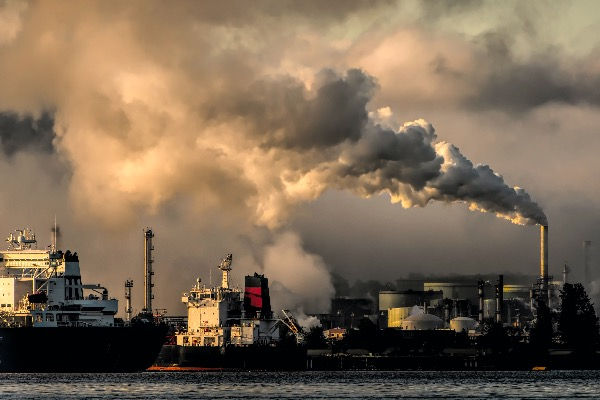Merchants of Doubt
- Rick Bonetti
- Mar 22, 2024
- 3 min read
Updated: Apr 10, 2024

There are deep connections between politics and the fossil fuel industry and campaigns to mislead the public and deny well-established scientific knowledge over four decades.
The spring 2022 PBS Frontline series, The Power of Big Oil exposed the decades of "Denial, Doubt, and Delay" tactics used by the fossil fuel industry to avoid responsibility for their role in contributing to climate change.
Naomi Oreskes and Erik Conway's 2010 book Merchants of Doubt chronicles "how a handful of scientists obscured the truth on issues from tobacco smoke to climate change." The book asserts "the same individuals who claim the science of global warming is “not settled” have also denied the truth about studies linking smoking to lung cancer, coal smoke to acid rain, and CFCs to the ozone hole."
The Week magazine on January 23, 2024, documented the shift in climate denialism on YouTube over the past 5 years - "the departure from rejection of anthropogenic climate change, to attacks on climate science and scientists, and rhetoric seeking to undermine confidence in solutions to climate change." The Verge reported. In a recently published report, the Center for Countering Digital Hate (CCDH) "discovered that new denial content made up 70% of climate disinformation on YouTube in 2023, up from 35% in 2018."
Shifting the blame from producers to the consuming public is a clever tactic of merchants of doubt. On March 4, 2024 the Guardian reported on the "Fury after Exxon chief says public to blame for climate failures: Darren Woods tells Fortune consumers not willing to pay for clean-energy transition, prompting backlash from climate experts." The outrage has been intense, particularly in the light of record profits.
The notion of an individual's carbon footprint also shifts responsibility for solving the climate crisis to the actions of the consuming public. Some conservation groups suggest that "by making small changes to our actions, like eating less meat, taking fewer connecting flights and line drying our clothes, we can start making a big difference.'

The IPCC graph above indicates that about two-thirds of anthropogenic greenhouse gas emissions are from the fossil fuel industry. The EPA reports the same story.
Merely creating doubt is another deflection tactic. The 2021 book: Unsettled: What Climate Science Tells Us, What It Doesn't, and Why It Matters was written by Steven E. Koonin, a professor of theoretical physics at Caltech for 30 years before he spent five years as Chief Scientist for British Petroleum, presumably responsible for "researching renewable energy options." That Koonin is a Senior Fellow (adjunct) at the Hoover Institution suggests at least a private enterprise bias. In A critical review of Steven Koonin’s ‘Unsettled’ Mark Boslough pointed out the book's logical fallacies and charged "to assess its statement on climate change, he [Koonin] recruited three scientists to represent the 97% consensus, and three contrarians, presumably to speak for the other 3%. The lack of proportionate representation amplified the contrary opinions that he heard, and only in one direction."
Heated says that "Plastic Recycling is a Scam" and "the fossil fuel industry has known for decades that recycling alone won't solve the plastic crisis. But it's spending millions to convince the public otherwise."
Thom Hartmann, in his March 22, 2024 article explaining Why is America Letting the Oil Industry Destroy the Planet?, assails "the fossil fuel industry, with a whole new crop of psychopathic executives, marketers, and attorneys. Burning their products produces air pollution that causes asthma, cancer, heart disease, and strokes; according to Harvard’s T.H. Chan School of Medicine, an estimated 350,000 Americans die prematurely every year because of this industry’s products."
On March 21, 2024, the Guardian suggested that "Fossil fuel firms could be tried in US for homicide over climate-related deaths, experts say." Will the legal system reverse imbalances or be the handmaidens to political pressures and donors?
Another well-known politician is a master merchant of doubt, accusing the accuser and habitually claiming to be a victim instead of the perpetrator, although the public is becoming wise. Will the public respond appropriately at the ballot box?


An interesting article in the New York Times discusses the involvement of the fossil fuel industry (Exxon in particular) in funding university "research" (Stanford in particular) and proposed guidelines on how Stanford should engage with fossil fuel companies.
https://www.nytimes.com/2024/03/01/climate/young-climate-scientists-future.html?unlocked_article_code=1.iE0.QXMi.nEHeWvO_1CCr&smid=url-share
Thank you for your excellent blog. The connection between the fossil fuel industry and climate emergency is mind-boggling--and deeply alarming.